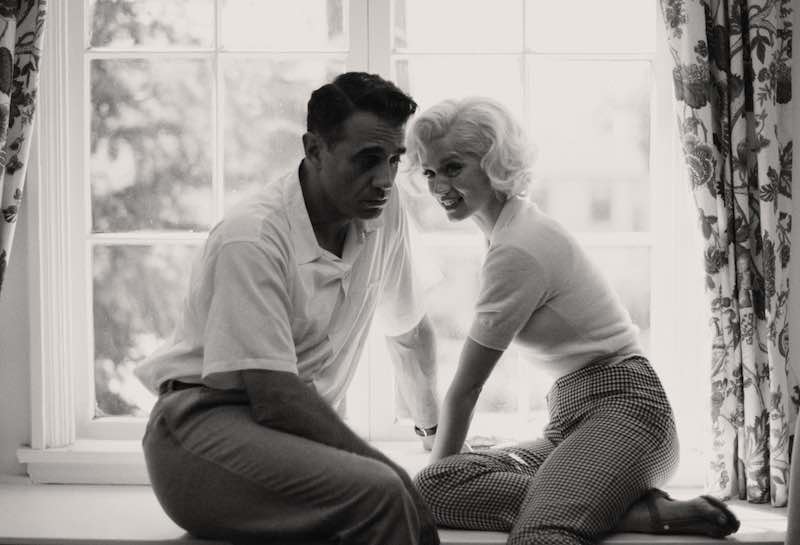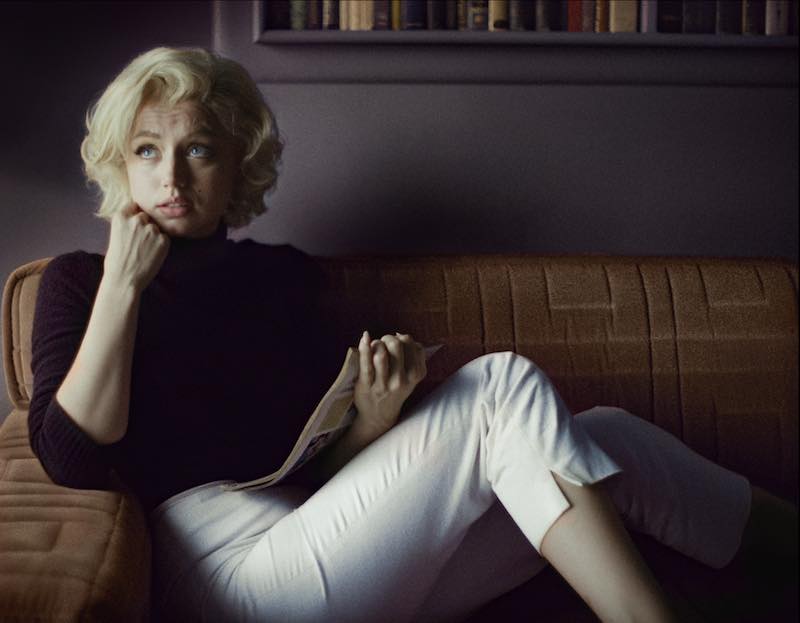Blonde, the Marilyn Monroe movie, is a horror story. Not the scary kind of horror story. This horror story is the misery, mistreatment, trauma, and horror that was Norma Jean Baker’s personal life. It’s painful to watch this nearly three hours of surreal, nightmarish explorations into Marilyn Monroe’s (Ana de Armas) tortured psyche.
Blonde is not a fun movie. It’s a series of vingnettes that only hang together as a story through accumulation. It begins with Norma Jean’s single mother (Julianne Nicholson) mistreating little Norma Jean. Her mother was institutionalized and the child sent to an orphanage.
She was raped by studio heads before getting jobs. She was haunted by abortions and miscarriages. Her absent father was always in her imagination. She was on drugs and booze and in dire need of mental health care, which she didn’t get.

Her relationships were glossed over. We saw her with Eddy Robinson Jr. (Evan Williams) Cass Chaplin (Xavier Samuel) early in her career. Her marriages to Joe DiMaggio (Bobby Cannavale) and Arthur Miller (Adrien Brody) were more steps on the descending staircase of her pain and agony. Her relationship with John Kennedy was pure exploitation on his part. There seemed to be no one in her life who loved her as something other than a symbol.
When she was out in public in her Marilyn Monroe persona, people looked to her like ravening beasts ready to consume and destroy her.
And destroy her they did.

All credit to Ana de Armas and her make up team. She looked like the real woman. de Armas made Norma real and showed her descent through the circles of hell with clarity.
Blonde was directed by Andrew Dominik, who wrote the screenplay based on a novel by Joyce Carol Oates. What the movie didn’t make me do was care. It didn’t make me understand what it was about Marilyn Monroe that made her worthy of my attention, the world’s attention. Her intelligence was only hinted at. Even the title, Blonde, is about a look, not a person.
Luckily, I already did care about Marilyn Monroe. I grew up on her movies, read about her story many times. If that hadn’t already been in my brain, this movie would have been even more horrific and troubling to watch than it already was. I had to force myself to keep watching, because I wanted to write a review of the film.
Responses to it have been all over the place and I wanted to watch it for myself. Some people could only talk about the sex and nudity. Some people could only talk about the way the movie was different from the novel. Me, I saw it as an examination of the way Hollywood and America treat women. They are commodities. They are human capital. They are objects, toys, blondes. Marilyn Monroe is the ultimate example.
There were some experimental techniques used to show mental illness and trauma in the film that may translate well into other situations. Other parts of it were weird and off-putting. In some ways the whole film was an experiment. As I stop writing, please imagine everything being overexposed and dissolving in a blur of light and glare. Bye . . .

Leave a Reply